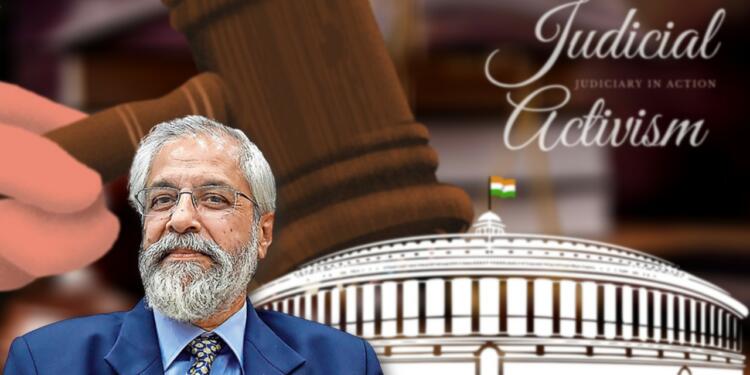If there is one principle on which modern constitutionalism can fundamentally rely, then it is the separation of powers. In the same vein, there is a concept called activism. As the name suggests, it rarely follows any boundary. In the last few decades, judicial activism has become a buzzword among the pillars of democracy.
Retired Justice for more activism
Retired Justice Madan B Lokur has advocated for increased judicial activism, particularly on the part of the Supreme Court, in the area of personal liberty. Speaking at the award ceremony of the India chapter of the International Press Institute (IPI-India), Justice Lokur said, “Personal liberty is the most cherished aspect of our fundamental rights. And the state has an obligation to protect our personal liberty rather than take it away. There should be more activism on the part of the Supreme Court when it comes to the issue of personal liberty.”
Also read: Unlocking the rules for handcuffing in India
Pros of judicial activism
Justice Lokur is absolutely right in his assertion about personal liberty. The judiciary is duty-bound to protect them. However, the method he is advocating is not universally accepted. Few even resent it. Let’s understand what it is, how it evolved, and why it is so controversial yet constitutional.
Though the concept is as old as 400 years, the phrase was first used by Arthur Schlesinger Jr. in his article “The Supreme Court: 1947,” published in Fortune Magazine. At that time, it was mainly used to refer to American Justices using the power of judicial review to strike down any law antithetical to the interests of the common people.
People’s welfare is the reason why its Indian adoption took shape mainly during the Indira era. People’s rights were under threat. Even basic structural doctrine is sometimes cited as an example of judicial activism. Various other revolutionary changes, like women’s rights, LGBT rights, and the expansion of the meaning of fundamental rights, are also credited to judicial activism.
Also read: High Court Orders Bail with Tech-Savvy Conditions
Activism overreached
The Apex Court uses its powers under Articles 32, 136, and 142 of the Indian Constitution. Article 32 provides for the Court to give a direct hearing to a writ petition. Article 136 empowers the Court to grant special leave to appeal any judgement, decree, determination, sentence, or order made by any court or tribunal in any cause or matter. Article 142 gives power to the Apex Court to issue any order to ensure full justice. As a result, public interest lawsuits have flooded the courts.
And it’s not wrong since populist leaders often tend to forget their duties. At the same time, it is not wise for the judiciary to step into the sphere of the legislature. There have been cases in which courts of record went overboard. For instance, before the release of Jolly LLB II, the Bombay High Court appointed a three-person committee to watch the movie and recommend slashing and chopping. The Censor Board was reduced to insignificance.
Also read: Your legal rights when Police refuses to register your FIR
The ban on liquor sales within 500 metres of state and national highways is also one of those cases. There was absolutely no evidence establishing the link between sales and accidents. Discarding evidence continued when the Apex Court did not accept scientific evidence regarding the impact of banning 2000 cc on the environment. It was later lifted. The quest for good had ended in irrationality.
It happened again when the Apex Court asked the central government to be more proactive when states are not doing their duty during disasters. The guidelines should have been passed to the states rather than burdening the centre with more responsibility. Similarly, when it came to NPA, the SC asked the RBI for a list of defaulters. RBI had to go out of its way to not convince SC to make them public.
Also read: Ali Mohammed Balwa v. ED: Time pass legal activist will be buried under debt now
Jaitley Ji was outspoken
The late Shri Arun Jaitley was against this overreach. He had criticised the rationale behind it. He said, and I quote, “It’s a flawed argument.” “It is flawed because if any organ of the state is not doing its duty, it can be directed to do its duty.” In his words, it is usurpation of power and the “step by step, brick by brick” destruction of the “edifice of India’s legislature.” Similar criticisms have been made by others as well.
Ultimately, it is the public that is the beneficiary. At the same time, history is filled with examples of autocrats using public gains to usurp absolute power. Judicial activism itself evolved because the legislature posed such a threat. I hope it does not turn out to be a Frankenstein monster.
Support TFI:
Support us to strengthen the ‘Right’ ideology of cultural nationalism by purchasing the best quality garments from TFI-STORE.COM
Also Watch:
https://www.youtube.com/watch?v=lfc66uk3gpk




























